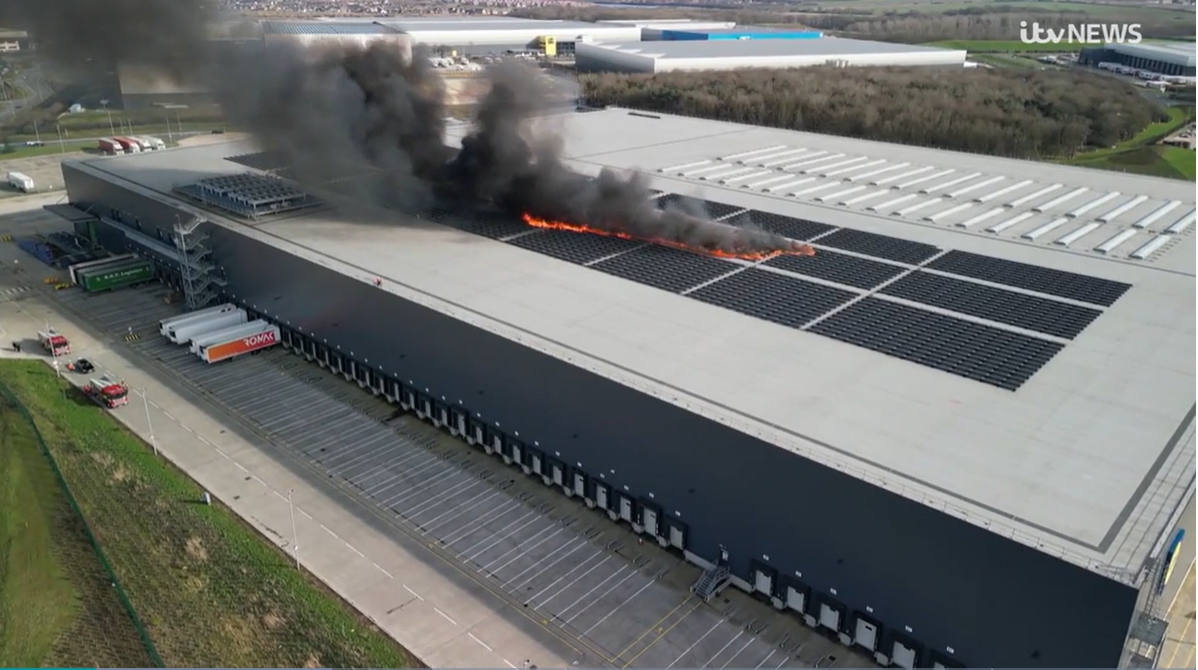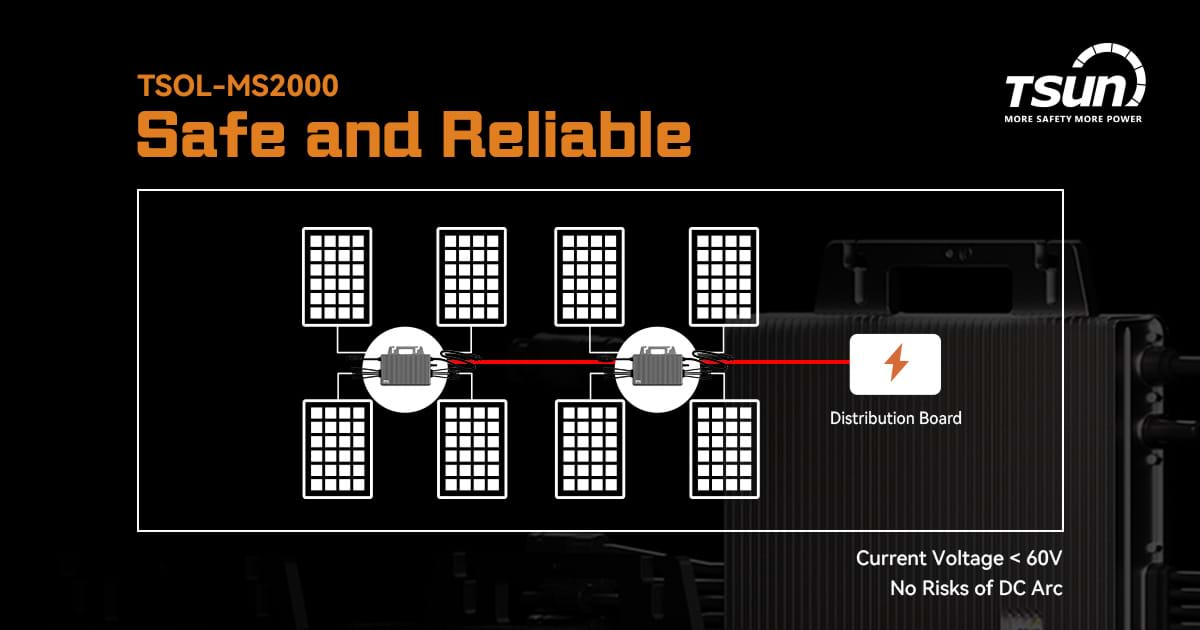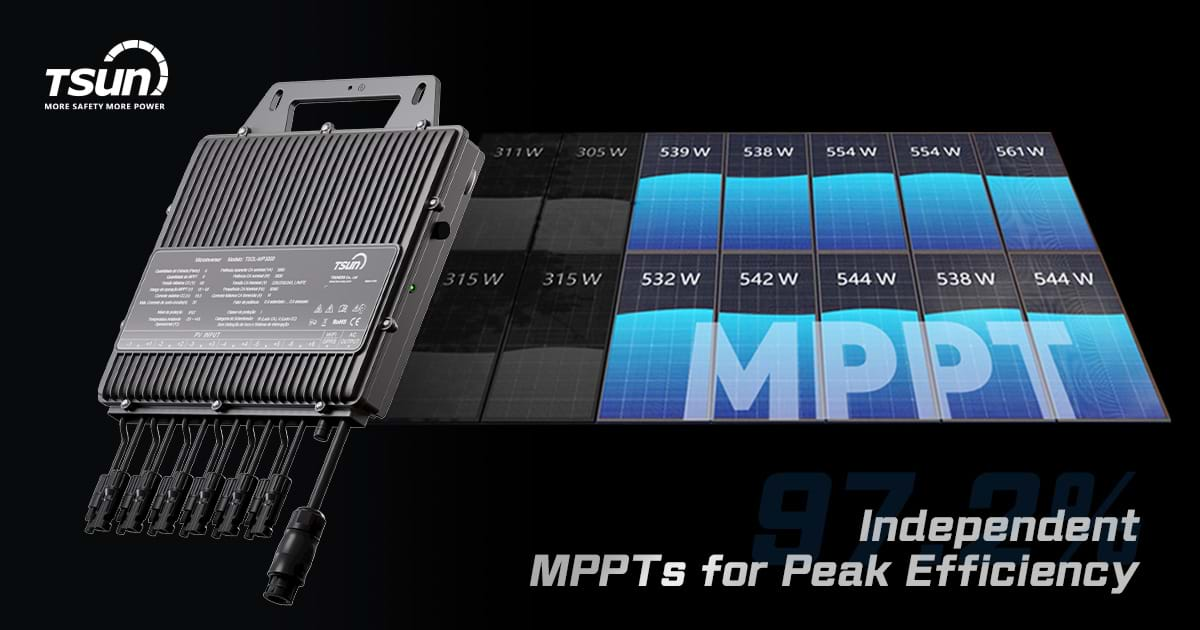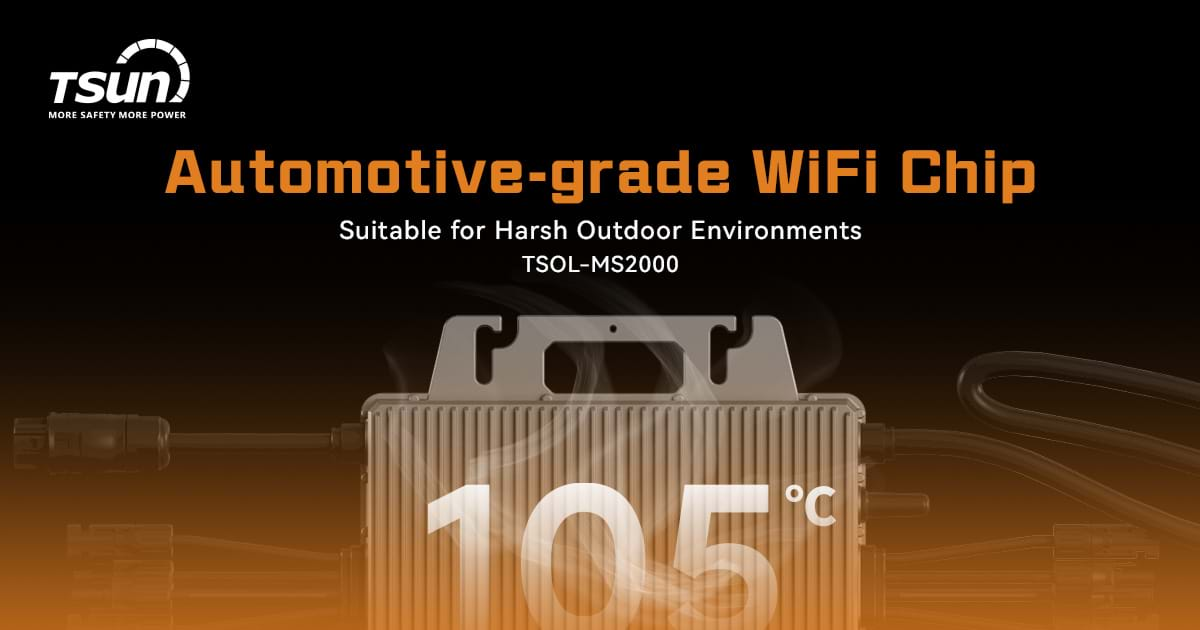Easy Solar Kit (with microinverter)
 LEARN DETAILS
LEARN DETAILS
Table of contents
On February 23, 2024, a devastating fire erupted in the solar panels installed on the roof of a substantial £70m Lidl warehouse in Peterborough, UK. The cause of the fire remains uncertain, reigniting public concerns regarding the safety of rooftop photovoltaic (PV) systems.

While various factors contribute to fire risks, such as overloading, loose connections, or faulty inverters, statistics indicate that over 80% of such incidents stem from faults on the DC side of PV systems. In these systems, the stacking of component voltages often results in direct current high voltages ranging from 600V to 1000V. Aging cable connections, malfunctioning connectors, mismatched models, or insufficient insulation between closely positioned conductors of opposite polarity can trigger direct current arcs under high voltage, potentially leading to ignition and fire outbreaks.
In contrast to string inverters, microinverters offer heightened safety features within solar systems:
Reduced Voltage
Microinverters, such as those manufactured by TSUN, adopt a low-voltage parallel connection method, ensuring that DC levels typically remain under 60V on the rooftop. In contrast, string inverters can reach voltage levels of 600-1000V. This significantly decreases the risk of DC Arc formation and enhances the overall safety of solar power generation systems.

Individual Panel Monitoring
TSUN's microinverters incorporate Maximum Power Point Tracking (MPPT) technology to optimize the performance of each panel. Through the TSUN Smart monitoring system, users gain access to real-time data on individual panel performance. This facilitates early detection of potential issues such as faulty panels or loose connections, mitigating fire hazards before they escalate.

Enhanced Heat Dissipation
TSUN microinverters are engineered with advanced heat dissipation mechanisms, ensuring optimal performance even under challenging environmental conditions. Furthermore, TSUN employs an automotive-grade WiFi chip, enabling stable performance even in temperatures up to 105℃.

As the distributed market for solar energy continues to evolve, TSUN remains committed to advancing the safe development of photovoltaics. By upholding the principle of "More safety, More power," TSUN aims to empower more property owners to harness safe, clean, and sustainable green energy solutions.

